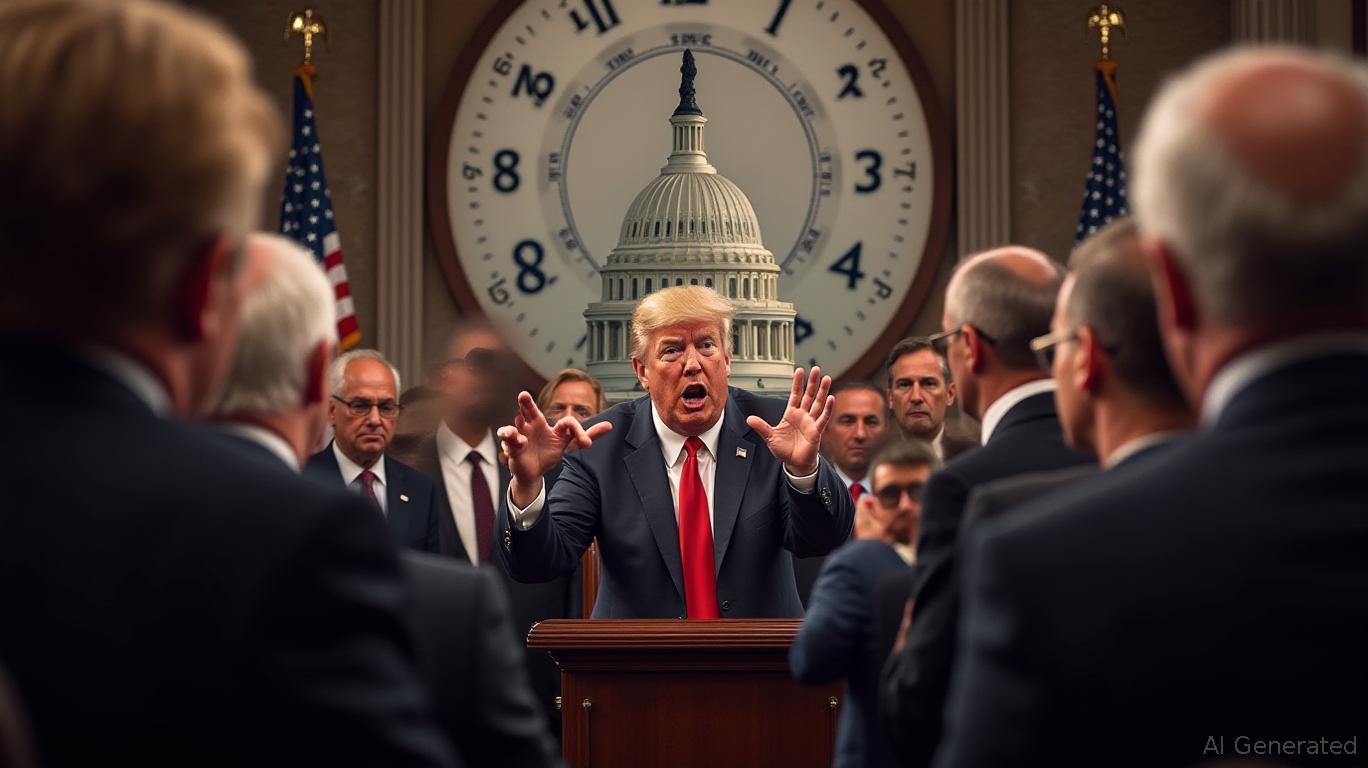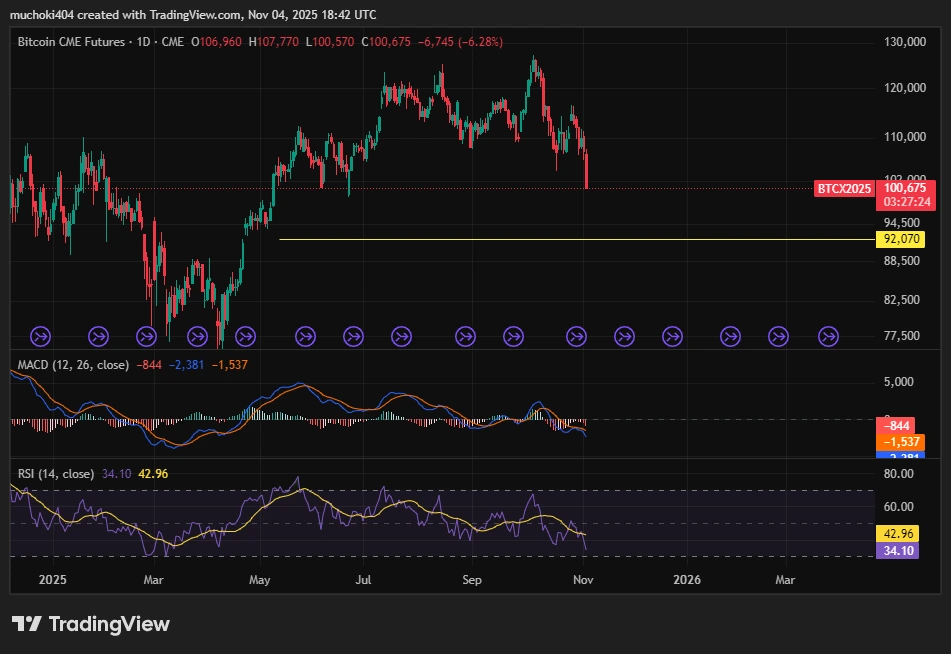Partisan Dispute on Healthcare Subsidies Leaves Government Stalled in 35-Day Shutdown
- U.S. government shutdown hits 35 days, matching 2018-2019 record due to partisan disputes over healthcare subsidies and funding. - Democrats demand ACA premium subsidy extension, while Republicans oppose tying funding to pandemic-era programs, causing unpaid workers and service disruptions. - Economic risks grow with potential $1.4B losses if shutdown extends, as military pay and food assistance programs face critical strain. - Senate shifts toward seeking 2026 funding extension after failed short-term b
On November 4, 2025, the U.S. government shutdown reached its 35th day, equaling the longest in American history, as the standoff between Democrats and Republicans shows no sign of resolution. The impasse, rooted in disputes over federal funding and the continuation of pandemic-era healthcare subsidies, has resulted in hundreds of thousands of federal employees missing paychecks and has interrupted essential government services. As the Senate prepares for a 14th vote on a temporary funding measure supported by Republicans, both parties remain firmly opposed, raising concerns about economic consequences and increasing public dissatisfaction.
This shutdown echoes the 35-day closure of 2018-2019, which was sparked by a disagreement over then-President Donald Trump’s request for $5.7 billion to build a border wall. The current deadlock arises from Democrats’ insistence on extending Affordable Care Act (ACA) premium subsidies, set to expire at the end of December, before agreeing to any funding bill. Senate Majority Leader John Thune, R-S.D., admitted that the November 21 deadline in the House-approved bill is no longer realistic, indicating a move toward a more extended funding plan. “That date is off the table,” Thune remarked, expressing willingness to consider funding the government into early 2026, as reported by an

The financial impact continues to grow. The Congressional Budget Office projected that a shutdown lasting four weeks could cut fourth-quarter GDP growth by one to two percentage points, with losses potentially reaching $1.4 billion if the closure extends to eight weeks, according to
Senate Minority Leader Chuck Schumer, D-N.Y., and other Democrats have characterized the standoff as a matter of ethics. “Americans are facing a healthcare crisis unlike anything we’ve seen before,” Schumer stated, accusing Republicans of putting political interests ahead of the public good. Republicans, on the other hand, claim that linking funding to ACA subsidies is a bargaining tactic. “The casualties of the Democrats’ shutdown are mounting,” Thune commented, calling for an end to what he described as “irresponsible” Democratic obstruction, according to
Past shutdowns, such as the 21-day closure in 1995-1996 and the 16-day shutdown in 2013, illustrate the growing frequency of these crises in a deeply divided Washington. The current impasse has already outlasted the 1995-1996 shutdown and now matches the 2018-2019 record. With the Veterans Day break approaching and the political landscape shifting ahead of mid-term elections, pressure on lawmakers is intensifying. Still, with no agreement in sight, the ongoing shutdown underscores the difficulties of governing amid increasing polarization, as highlighted by
Disclaimer: The content of this article solely reflects the author's opinion and does not represent the platform in any capacity. This article is not intended to serve as a reference for making investment decisions.
You may also like
XRP News Today: XRP ETFs Close to Getting Approved as Companies Overcome SEC Obstacles
- Franklin Templeton removed the SEC's 8(a) delay clause from its XRP ETF filing, aiming for a potential launch this month. - Competitors like Bitwise and Canary Funds similarly revised filings, signaling industry-wide urgency to capitalize on regulatory clarity. - The SEC's recent Ripple settlement removes a major hurdle, with experts predicting XRP ETF approval by mid-November. - XRP ETFs could replicate Bitcoin ETF success by offering institutional-grade access to the third-largest cryptocurrency.

Solana News Update: Core Values or Hype? Solana's Ecosystem Divides the Crypto Community
- Solana's BONK token struggles with 57% price drop vs. MoonBull ($MOBU)'s $550K presale surge as high-risk 1000x play. - Hyperliquid's 65% HYPE token boost via $780M buyback contrasts BONK's failed $26.65M buyback due to lack of utility and revenue. - Bonk, Inc. emerges as institutional gateway to Solana's $3B-revenue ecosystem, bridging meme coins with regulated markets through token scarcity. - MoonBull's 7,244% projected gain and aggressive 27.4% stage jumps highlight speculative frenzy despite Solana'

YFI rises 1.75% on NOV 5 2025 During Brief Pullback and Sustained Upward Trend
- YFI surged 1.75% on Nov 5, 2025, but faces 6.51% weekly/monthly declines and a 44.94% annual drop. - Market remains volatile short-term yet retains long-term bullish momentum from multi-year trends. - Mixed technical indicators show daily RSI recovery but weekly oversold conditions and positive MACD divergence. - A backtest strategy evaluates YFI's rebound potential after 10% single-day drops using 2022 historical data.
Bitcoin Bloodbath: BTC Price Plunges Below $100K as Whales Vanish and Traders Brace for More Selloff
